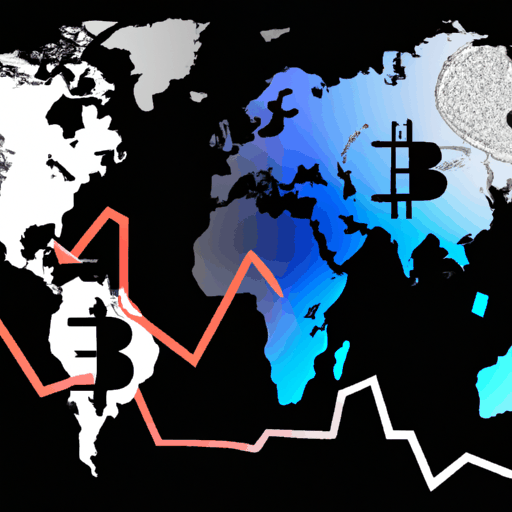
Global Tariff Tensions Escalate With Potential Impact on Crypto Markets
By: Eliza Bennet
The global trade landscape is witnessing a significant shake-up following recent tariff-related announcements from both the United States and China, leading to a surge in interest in alternative investment options like Bitcoin. The US President recently declared a 90-day pause on reciprocal tariffs, aiming to stabilize relations with countries that do not retaliate with counter-tariffs. A notable exception, however, is China, where tariffs are set to increase dramatically on specific goods, rising to as high as 125%. This decision resulted in a marked rally in US stock markets, with the S&P 500 index jumping by nearly 7% and the Nasdaq climbing approximately 8%.
The policy shift comes amidst a broader economic tug-of-war, as China has also announced a sweeping increase in tariffs on US imports, escalating them from 34% to a substantial 84%. This aggressive move was a direct counteraction to the recent US tariff hikes on Chinese products. As tensions between these two economic giants mount, China appears to be recalibrating its financial strategy. Reports suggest that the People's Bank of China is directing major state-owned banks to cut down on US dollar purchases, potentially signaling a shift towards new financial safeguard measures. Additionally, there's speculation about China reducing its US Treasury holdings, which could further unsettle global markets.
Observing these developments, the cryptocurrency market insantly reacted, with Bitcoin emerging as a potential refuge amidst growing market volatility. While initially experiencing a dip, Bitcoin's perceived role as a hedge against economic instability could see it attract more capital if the trade uncertainties prolong. Analysts believe that prolonged trade tensions and a possible depreciation of fiat currencies may drive investors towards digital assets. As the traditional finance sectors brace for fluctuations, Bitcoin's growth could underscore its emerging status not just as a speculative asset, but as a critical component in a diversified financial strategy.
The evolving trade conflict highlights a crucial juncture for global investors, where digital currencies like Bitcoin offer an alternative, decentralization-centric investment route, free from the unpredictabilities of geopolitical tensions. Such financial shifts could redefine global economic landscapes, pushing cryptos further into mainstream investment conversations.



